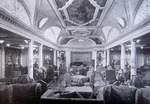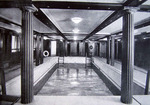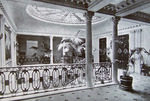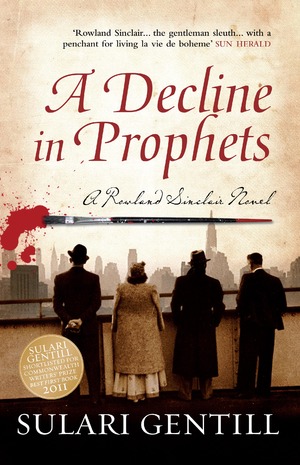 A Decline in Prophets is the second book in the Rowland Sinclair mystery series by Sulari Gentill, set in the early 1930s. We find Sinclair and his group of bohemian friends on their way home to Australia after a lengthy stay in Europe. With funds no issue for Sinclair, they are sailing first class on the Aquitania, a luxury Cunard liner, when the bodies start to drop. Inadvertently, Sinclair finds himself in the middle of events. Weaving historical fact, events and people with fiction, Gentill has created a delightful and spirited crime story set against the public unravelling of the Theosophist Society, an organisation focused on the occult and spiritualism. Gentill deftly engages the reader all the way from the decks of the Aquitania to icy New York, a debauched Norman Lindsay garden party and the grand houses of Woollahra and Mosman-with Gentill’s evocative rendering of 1930s Sydney just one of the surprises. The first book in the series, A Few Right Thinking Men, was shortlisted for the 2011 Commonwealth Prize for a first book. A Decline in Prophets is definitely one for those who enjoy their historical crime with a with a healthy dose of 1920s glamour, wit and social history.
A Decline in Prophets is the second book in the Rowland Sinclair mystery series by Sulari Gentill, set in the early 1930s. We find Sinclair and his group of bohemian friends on their way home to Australia after a lengthy stay in Europe. With funds no issue for Sinclair, they are sailing first class on the Aquitania, a luxury Cunard liner, when the bodies start to drop. Inadvertently, Sinclair finds himself in the middle of events. Weaving historical fact, events and people with fiction, Gentill has created a delightful and spirited crime story set against the public unravelling of the Theosophist Society, an organisation focused on the occult and spiritualism. Gentill deftly engages the reader all the way from the decks of the Aquitania to icy New York, a debauched Norman Lindsay garden party and the grand houses of Woollahra and Mosman-with Gentill’s evocative rendering of 1930s Sydney just one of the surprises. The first book in the series, A Few Right Thinking Men, was shortlisted for the 2011 Commonwealth Prize for a first book. A Decline in Prophets is definitely one for those who enjoy their historical crime with a with a healthy dose of 1920s glamour, wit and social history.
Pip Newling - Bookseller and Publisher
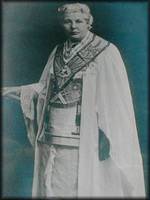 The Theosophical movement was now in decline, but at its height it had counted powerful men amongst its number. Prime Ministers, men of letters. Indeed it was rumoured that Australia's new national capital had been designed by Burley Griffin as a monument to Theosophical symbolism. And all these men had been led by Annie Besant.
The Theosophical movement was now in decline, but at its height it had counted powerful men amongst its number. Prime Ministers, men of letters. Indeed it was rumoured that Australia's new national capital had been designed by Burley Griffin as a monument to Theosophical symbolism. And all these men had been led by Annie Besant.
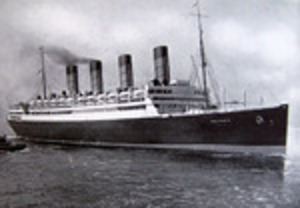 Though neither as large or as fast as the newer ships in the Cunard Line, the RMS Aquitania boasted a luxury and opulence that was unsurpassed. Her passengers cared less about arriving first than they did about doing so in the most elegant manner possible.
Though neither as large or as fast as the newer ships in the Cunard Line, the RMS Aquitania boasted a luxury and opulence that was unsurpassed. Her passengers cared less about arriving first than they did about doing so in the most elegant manner possible.
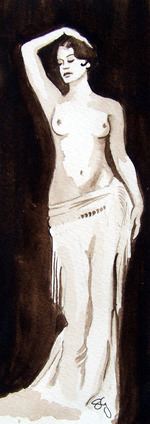 Isobel's creamy skin was suffused with a blush of rose as she displayed herself to him. His eyes lingered on her breasts, full and round despite her diminutive frame. She smiled almost posing as he took her in. He would paint her like this, he thought - a brash, impudent nymph of classical allusion.
Isobel's creamy skin was suffused with a blush of rose as she displayed herself to him. His eyes lingered on her breasts, full and round despite her diminutive frame. She smiled almost posing as he took her in. He would paint her like this, he thought - a brash, impudent nymph of classical allusion.
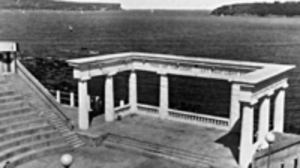 "Precisely," Cartwright replied. "The Watermans worked with Leadbeater for years preparing to bring the World Prophet to Sydney - built some kind of Roman amphitheatre for Krishnamurti's arrival."
"Precisely," Cartwright replied. "The Watermans worked with Leadbeater for years preparing to bring the World Prophet to Sydney - built some kind of Roman amphitheatre for Krishnamurti's arrival."
Rowland knew the amphitheatre on Balmoral Beach. He had thought it just another folly built on the excesses of the twenties. "And then Krishnamurti abdicated," he said thoughtfully.
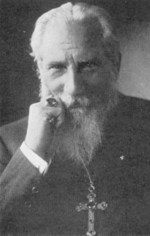 The man before him was tall. A long, grey beard reached his waist and seemed, by hiding the rest of his features, to accentuate the chilling glare of his eyes. He wore a cassock of some sort and a purple cape which fluttered in the gentle midsummer breeze.
The man before him was tall. A long, grey beard reached his waist and seemed, by hiding the rest of his features, to accentuate the chilling glare of his eyes. He wore a cassock of some sort and a purple cape which fluttered in the gentle midsummer breeze.
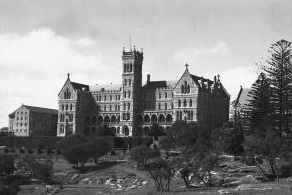
St Patrick's Seminary was a building from an era past. A truly massive Gothic structure, its stone facades were raised high upon the rugged hills behind Manly Beach. The six storeys of its central belltower loomed like a mast of some vast flagship of faith.
Rowland wondered whether his Protestantism was visible. It felt uncomfortably so. He had know Catholics before, but generally they had been fallen, or at the very least lapsed. The residents of St Patrick's were a different thing altogether.
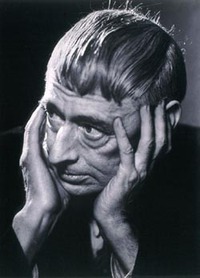 Milton met the great artist's eye. "That's correct," he said. "Completely unmitigated, you pitiful has-been peddlar of pornography. Masquerade as an artist all you want, Lindsay, we both know your only talent is titillating the repressed middle classes with your finely etched filth!"
Milton met the great artist's eye. "That's correct," he said. "Completely unmitigated, you pitiful has-been peddlar of pornography. Masquerade as an artist all you want, Lindsay, we both know your only talent is titillating the repressed middle classes with your finely etched filth!"
Rose Lindsay rolled her eyes and moved next to her husband.
Norman Lindsay's wide, expressive mouth broke unexpectedly out of its angry line, and he laughed. He put his arm around Milton. "A drink?"
 "One good reason, Rowly," Wilfred demanded. "Just give me one good reason why we need a plane."
"One good reason, Rowly," Wilfred demanded. "Just give me one good reason why we need a plane."
Rowland had now climbed onto the fuselage to examine the fuel tank housed in the bulging airfoil that formed the centre section of the upper wing.
"We don't want to be the last people to get one," he said smiling. "How would it look?"
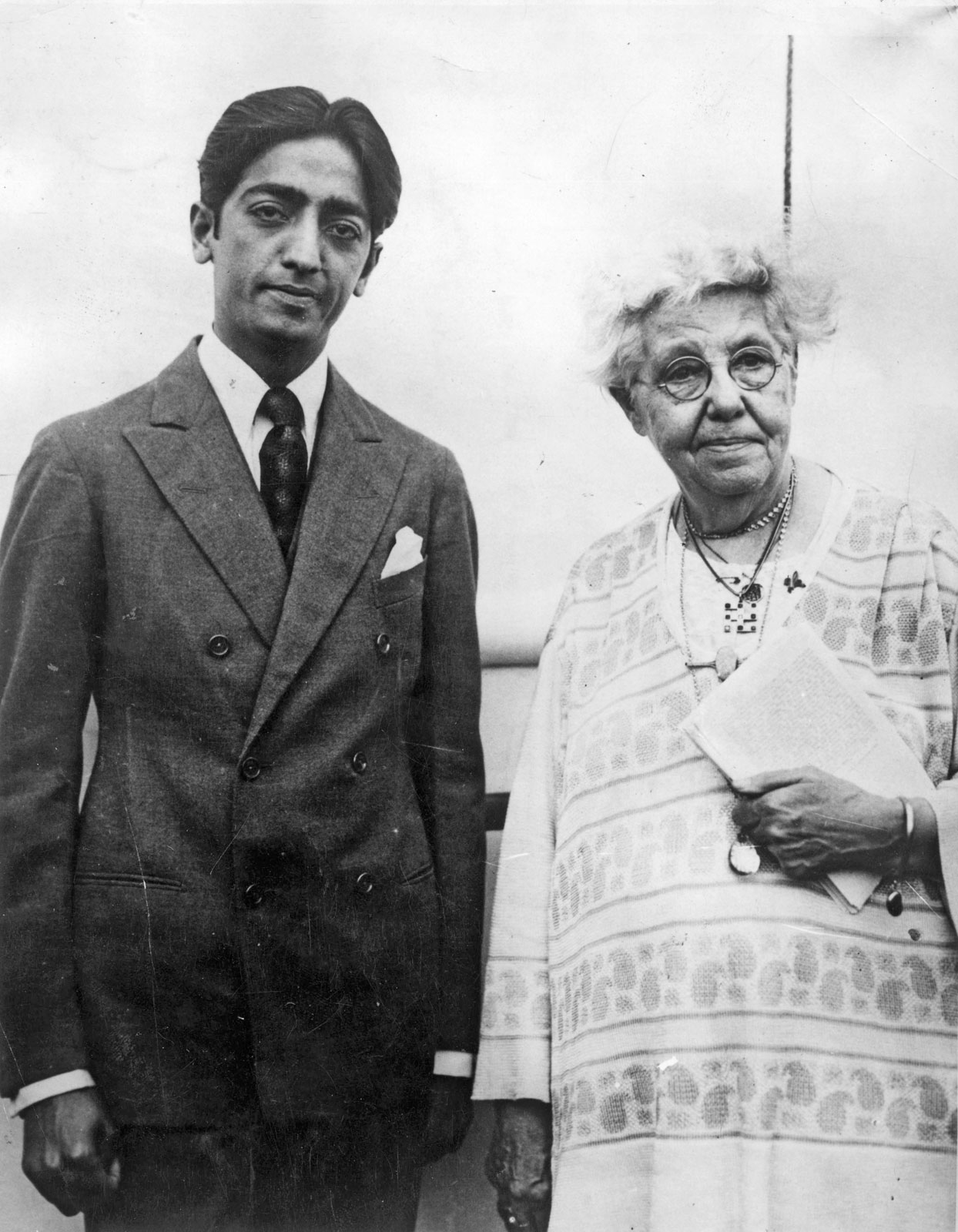
...Rowland considered the angle with an artist's eye. The creaminess of her complexion was dramatic in contrast to the chocolate skin of the man upon whose conversation she was focussed.
Jiddu Krishnamurti had dined with them before, and with him his eminent - perhaps notorious - entourage. Rowland found the man intriguing - it was not often one broke bread with an erstwhile messiah.
